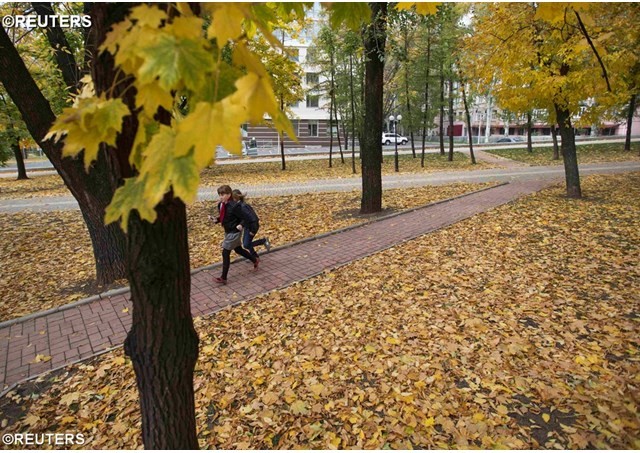(VOVworld)- Russia, Ukraine and the EU failed to reach an accord on gas supplies for the coming winter at recent EU-brokered talks in Belgium but agreed to meet again on October 29 in the hope of ironing out differences over Kiev's ability to pay. The failure of the talks anticipates a frozen winter in Europe.
 |
At the talks, European Energy Commissioner Guenther Oettinger, Russian Energy Minister Alexander Novak and Ukrainian Energy Minister Yuri Prodan has discussed gas prices, Kiev’s ability to pay and Moscow’s gas supplies. They reached consensus on gas prices and supplies, but remained at odds about Ukraine’s ability to pay its gas debt to Russia. Kiev wanted Russia to advance the gas on credit, but Moscow refused and asked the EU to guarantee Ukraine’s debts. The EU, however, has not decided how much to help Kiev because it is facing its own financial difficulties. The impasse has many in Europe worrying about a possible very cold winter. Two previous price disputes between Russia and Ukraine in 2006 and 2009 reduced the gas supply to the EU to uncomfortable level.
Gas is Russia’s major card
The European Union relies on Russia for about a third of its gas, roughly half of which flows through Ukraine. If Russia suspends its gas exports to Europe, EU countries like Macedonia, Finland, Estonia, Serbia and Herzegovina will be hard hit because 60% of their fuel consumption depends on gas imports.
Although Ukraine has agreed to pay Russia's Gazprom 385 USD per thousand cubic meters of gas, Ukraine cannot pay its current debts to Russia. Russia is not willing to compromise. Saddled with sanctions by the West, Russia is well aware of the leverage its gas resources bring to the confrontation. Although it says it does not want to cause a crisis this winter, Moscow has warned that if Ukraine tries to take gas from Russia’s pipelines through Ukraine to the EU, it will immediately cut off the flow.
Remembering the gas shortages in 2006 and 2009, the EU will have to decide whether to provide financial assistance to Ukraine or risk another cold winter in Europe.
Will the crisis scenario repeat?
The EU has no better option than to provide financial assistance to Ukraine to ensure sufficient gas for itself. German Chancellor Angela Merkel called on allies to confront the problem, but the EU is hesitant to loan 2 billion euros to Ukraine while it is facing its own financial difficulties. The EU has not decided whether to borrow from the European Bank for Reconstruction and Development or the European Commission or to ask a European company to buy Russia gas and resell it. It will be difficult to get consensus within the EU for financially assisting Ukraine.
This is not just a dispute between Kiev and Moscow. It’s a confrontation between Russia and the West. Halting gas exports to Europe will cause a budget deficit for Russia but it will also hurt European consumers.